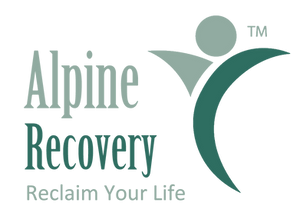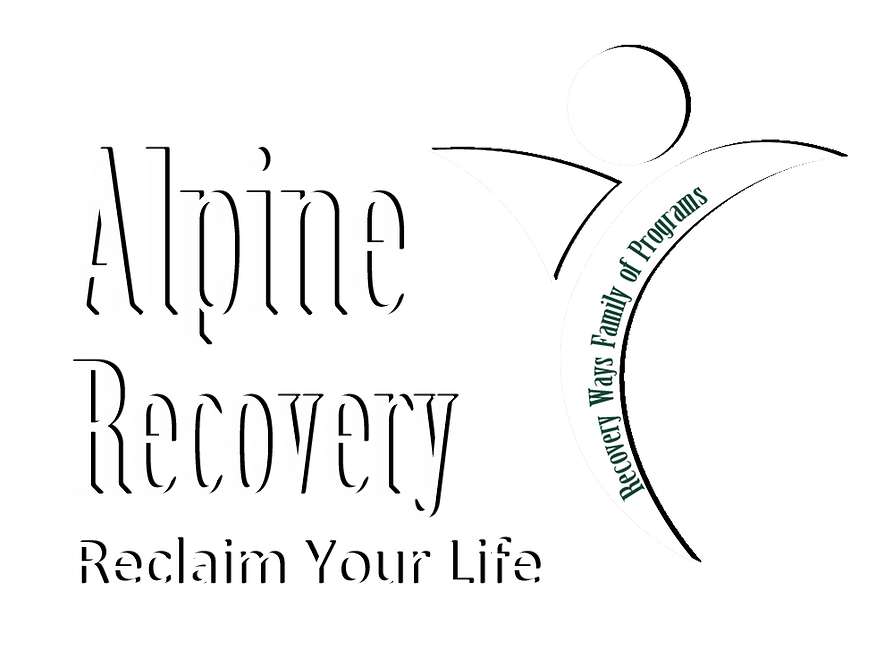Understanding Addiction in Everett
Everett, Washington, nestled just north of Seattle, grapples with a significant substance abuse challenge. This city, known for its picturesque landscapes and rich cultural heritage, also faces the harsh realities of addiction, impacting individuals and families alike. With an uptick in drug and alcohol-related complications, local communities are increasingly seeking effective support systems.
Understanding the unique factors contributing to addiction in Everett helps tailor treatment approaches. The city’s proximity to major urban centers may facilitate access to drugs, compounded by social and economic pressures common in such areas. These local dynamics underscore the importance of accessible and personalized addiction treatment solutions.
Alpine Recovery is one of the facilities offering targeted solutions for those searching for addiction treatment near me in everett. By focusing on the individual needs of each client, they aim to address the multifaceted nature of addiction in the community.
Importance of Personalized Recovery Plans
A key component of effective addiction treatment is the development of personalized recovery plans. At Alpine Recovery, each plan is crafted with careful consideration of the client’s history, current challenges, and future goals. This personalized approach ensures that every individual receives the appropriate care and support to navigate their unique recovery journey.
Personalized plans often include a combination of detoxification, therapy, and aftercare services. The inclusion of these elements ensures that clients are not only medically stabilized but also receive continuous support as they transition back into everyday life. In Everett, having a personalized plan is crucial, given the diverse needs of those seeking addiction treatment near me in everett.
Role of Evidence-Based Therapies
Evidence-based therapies form the backbone of successful addiction treatment strategies. At Alpine Recovery, these therapies are foundational, employing scientifically validated techniques to facilitate recovery. Cognitive Behavioral Therapy (CBT), for example, is widely used to help clients identify and change negative thought patterns contributing to their addiction.
In Everett, integrating evidence-based therapies into treatment programs ensures that individuals have access to reliable and effective interventions. This approach not only enhances the likelihood of successful recovery but also instills confidence in clients as they embark on their healing journey.
Comprehensive Care Approach
Addressing the complex nature of addiction requires a comprehensive care approach. Alpine Recovery embraces this by offering a blend of services aimed at healing the whole person. This means looking beyond immediate symptoms to address underlying psychological, emotional, and social factors.
The comprehensive care model includes therapy sessions, family counseling, and holistic practices like mindfulness and nutrition education. This integrative approach is particularly beneficial for those seeking addiction treatment near me in everett, fostering a supportive environment conducive to long-term recovery.
Significance of Family Support
The role of family support cannot be overstated in the recovery process. Alpine Recovery recognizes this by including family counseling as a core element of their programs. Engaging family members helps mend relationships and build a strong support network around the client.
Family involvement not only aids the individual in recovery but also empowers family members with the tools and insights necessary to support their loved ones effectively. For families in Everett, understanding and participating in the recovery journey can significantly enhance the chances of sustained sobriety.
Holistic Treatments for Enhanced Well-being
Holistic treatments play a pivotal role in addressing addiction by promoting overall well-being. At Alpine Recovery, these treatments encompass activities like yoga, meditation, and physical exercise, which are integrated to support mental and physical health.
Incorporating holistic practices into the recovery process helps clients in Everett maintain a balanced lifestyle that can prevent relapse and promote long-term health. These practices are particularly valuable for their ability to reduce stress, improve mood, and enhance self-awareness — all key components of a successful recovery journey.
Aftercare and Continuous Support
Transitioning from treatment back into everyday life can be challenging, making aftercare a critical aspect of the recovery process. Alpine Recovery structures robust aftercare programs to ensure clients continue to receive support even after completing primary treatment stages.
These programs might include ongoing therapy sessions, support groups, and resources for reintegration into work or school environments. For those in search of addiction treatment near me in everett, effective aftercare services can make a profound difference in maintaining recovery momentum and preventing relapse.
Community and Peer Support
Community and peer support are invaluable during recovery, providing a network of understanding and encouragement. Alpine Recovery fosters this support by creating spaces where clients can share experiences, challenges, and successes with peers who understand their journey.
Engaging in community support networks offers clients in Everett a sense of belonging and empathy. This connection can empower individuals to stay committed to their recovery goals while gaining insights and motivation from others facing similar challenges.
Navigating Insurance and Financial Options
Understanding the financial aspects of addiction treatment is essential for many seeking help. Alpine Recovery assists clients in navigating insurance options and offers flexible payment plans to alleviate financial stress. Resources like Medicare, Medicaid, and private insurance are leveraged to make treatment accessible.
For individuals in Everett, exploring these financial options can open doors to the quality care needed to overcome addiction. Knowing that financial constraints do not stand in the way of receiving necessary treatment is reassuring for many on their path to recovery.
Local Resources and Accessibility
Accessibility is a crucial factor in effective addiction treatment. Alpine Recovery, conveniently located and well-connected by public transportation systems such as SoundTransit and Community Transit, ensures clients in Everett can easily access their facilities.
Beyond treatment centers, Everett offers a range of local resources that support recovery, including support groups, educational workshops, and community events. Engaging with these resources provides additional layers of support essential for sustained recovery success.What is the best course of treatment for those with addictions?
The best course of treatment for individuals struggling with addiction is one that is tailored specifically to their unique needs and circumstances. At Alpine Recovery, we take into account a comprehensive view of each client’s personal history, the substance involved, co-occurring mental health issues, and personal goals. A combination of inpatient or outpatient care, evidence-based therapies such as Cognitive Behavioral Therapy (CBT), and holistic practices like mindfulness and exercise often forms a robust treatment plan. For example, someone who has a history of trauma may benefit from trauma-informed therapy in addition to traditional approaches. It’s crucial to consider personal motivations and external support systems when crafting a treatment plan. Are there specific aspects of your life or health that might influence your treatment needs?
What is prescribed for addiction?
Medications can play an important role in the treatment of addiction, particularly for substances like opioids or alcohol. Buprenorphine and methadone, for instance, are commonly used to manage opioid dependence, while naltrexone can be effective for both opioid and alcohol addiction. At Alpine Recovery, we ensure that medications, where appropriate, are integrated into a broader therapeutic framework. This approach helps manage withdrawal symptoms, reduce cravings, and support long-term recovery. For someone on medication-assisted treatment, regular monitoring and adjustments by healthcare professionals ensure the treatment’s effectiveness and safety. Do you have any concerns or questions about how medication might fit into your treatment plan?
Where can you go if you have an addiction?
Individuals seeking help for addiction have several options available. Alpine Recovery provides both inpatient and outpatient services, offering a serene environment where clients can focus on their recovery. There are also national hotlines, local support groups, and community resources that can provide immediate assistance. It’s important to choose a setting that feels safe and supportive to begin tackling the complex journey of recovery. Accessing local resources, such as counseling centers or peer-led support groups, can be a beneficial step in building a solid foundation for long-term sobriety. What are the key factors you’re considering while choosing a treatment facility or support network?
What is the cost of substance abuse treatment?
The cost of substance abuse treatment can vary significantly based on the type of program and duration of care. At Alpine Recovery, we believe in making treatment accessible and work with various insurance providers to help cover costs. For those without insurance, we offer flexible payment plans and financial planning assistance. According to the National Institute on Drug Abuse, investment in treatment can yield a significant return, minimizing healthcare costs and improving personal well-being. It’s important to consider the long-term benefits of investing in recovery. What financial considerations or resources might you need to explore as part of your decision-making process?
Why are evidence-based therapies important in addiction treatment?
Evidence-based therapies, like CBT and Motivational Interviewing, are critical because they have been scientifically validated to be effective in treating addiction. Alpine Recovery uses these therapies to help clients understand and modify behaviors associated with substance use. This approach not only provides a structured pathway to recovery but also fosters a sense of confidence in clients, as they know they’re engaging with proven strategies. Think of it like having a roadmap on a road trip; evidence-based therapies can guide you through the ups and downs of the recovery journey. How might understanding the science behind your treatment options impact your commitment to the recovery process?
How does family support influence addiction recovery?
Family support is crucial in the recovery process as it provides a network of care and accountability. At Alpine Recovery, we include family counseling in our programs to help mend relationships and equip family members with tools to support their loved ones effectively. Having a supportive family can significantly enhance the chances of sustained sobriety by reducing feelings of isolation and strengthening the support system around the individual. Imagine overcoming challenges with a supportive cheering squad; that’s the essence of a strong familial support system. What steps can your family take to become more involved and supportive in your recovery journey?
What are the benefits of holistic treatments in addiction recovery?
Holistic treatments complement traditional therapies by addressing the mind, body, and spirit, fostering overall well-being. At Alpine Recovery, incorporating activities like yoga, meditation, and nutrition education helps clients find balance and reduce stress–a key factor in preventing relapse. These practices promote resilience and self-awareness, aiding in personal growth alongside recovery. Imagine the holistic approach as adding more strings to your bow; it equips you with diverse tools for maintaining health and sobriety. How might integrating these practices into your routine enhance your overall recovery and personal wellness?
Resources
- Substance Abuse and Mental Health Services Administration – SAMHSA is the leading agency in the U.S. working to reduce the impact of substance abuse and mental illness on America’s communities.
- Addiction Center – Addiction Center provides information on addiction treatment options, resources, and guides for individuals struggling with substance abuse.
- National Institute on Drug Abuse – NIDA is a federal government research institute dedicated to providing information on the science of drug use and addiction.
- MentalHealth.gov – MentalHealth.gov offers resources on mental health conditions, including substance abuse disorders, and provides information on how to get help.
- Healthy People – Healthy People is a national initiative that sets health objectives to improve the health and well-being of individuals across the United States.


